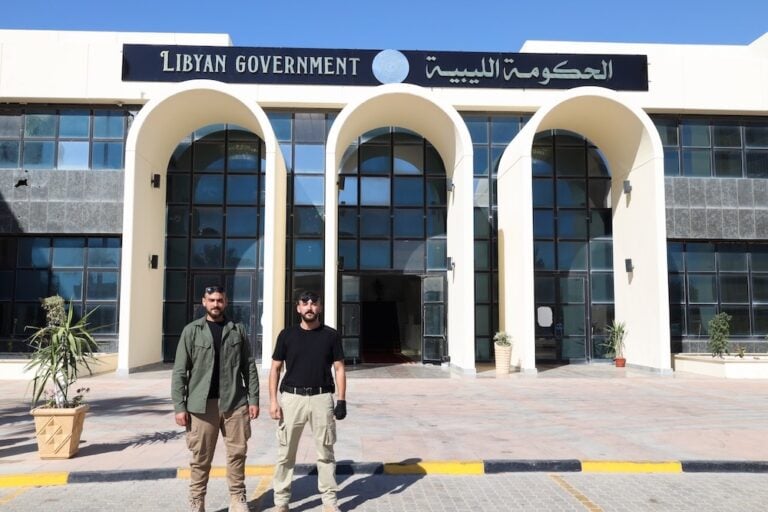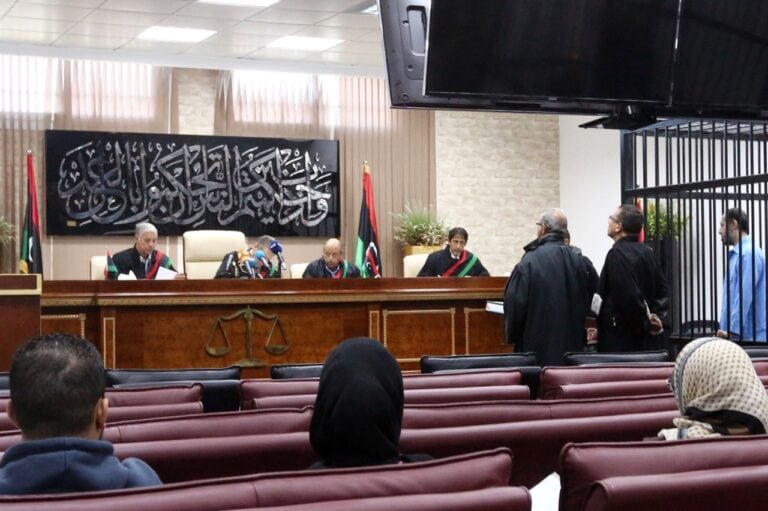There are no signs that the Libyan authorities are taking any measures to curb abuses committed against journalists in Libya. The media are being targeted more than ever in the constant political and security crises rocking the country.
Reporters Without Borders reiterates its dismay at the environment in which journalists have to operate in Libya. They fear for their safety, their integrity, and increasingly for their lives.
Journalists continue to be exposed to intimidation, abduction, arbitrary arrest and physical violence without any sign that the Libyan authorities are taking any measures to curb these abuses. The media are being targeted more than ever in the constant political and security crises rocking the country.
In one of the latest cases, Ayman Al-Shetawi, a journalist with two newspapers, Febrayir and Yefren Times, was abducted while on his way to Yefren, his home town, on 6 March. He was stopped at a checkpoint 50 km south of Tripoli at Al-Azizia, an area where the Warshafana tribe is based, and has not been seen since then.
His abduction seems to be directly linked to a dispute between the Warshafana tribe and, among other, brigades based in Suq Al-Jumaa, a district in eastern Tripoli, following a raid on 19 January by armed brigades of former revolutionaries operating under the banner of “the Revolutionaries Operations Room” and “the Tripoli Joint Operations Room”.
The aim of the operation was to arrest dozens of alleged gang members responsible for criminal activities in the town of Warshafana, southwest of Tripoli. It sparked a full-blown battle with several deaths and arrests on both sides..
According to several accounts, Shetawi was abducted as a bargaining chip, with the aim of getting the Suq Al-Jumaa brigades to release prisoners they are holding who are from Warshafana.
Reporters Without Borders has received reports of similar kidnappings by the various parties to the conflict, although the names of the victims still cannot be revealed for security reasons. Journalists are now in a very delicate situation that is being exacerbated by the political and security tension.
In a separate development, armed men overran the Tripoli headquarters of state-owned Libya Al-Rasmiya TV from 5 p.m. to 8 p.m. on 3 March without any injuries being reported.
A member of the staff said the TV station’s employees had asked the Special Deterrence Forces, a brigade led by Abdel Raouf Kara, to intervene because the government had taken no action in response to employees’ complaints about the management and the station’s CEO, Jumaa Al-Aribi, in particular.
When protesters stormed the General National Congress (the interim parliament) on 2 March, four protesters armed with knives kidnapped satellite TV station Al-Nabaa reporter Safwan Abousahmein, who had been there to cover a parliamentary session.
After catching Abousahmein as he tried to flee the building, the protesters told him to stop covering the GNC’s sessions and falsely accused him of supporting the GNC and being the son of its president, Nouri Abousahmein. They finally let him go nearly three hours later after accepting that he was not after all related to the parliament’s president.
The three journalists of the Sabha branch of the state-owned TV Al-Wataniya who were kidnapped on Tripoli’s airport road on 10 February, photographers Faddan Hussein Al-Sakit and Ibrahim Saeed Abdelda’im and reporter Ibrahim Abdelkader Rieda, were finally released four weeks after their abduction. The identity of their kidnappers and the reasons for their abduction are nevertheless still unknown.
Reporters Without Borders deplores the glaring lack of security for Libyan journalists and urges the authorities to adopt legislative and judicial protective mechanisms without delay to end the crimes against media personnel and the impunity that is fuelling the cycle of violence.
RWB points out that Libya is required by national and international obligations to respect freedom of information. These obligations are enshrined in the 2011 Constituent Covenant and in various international treaties to which Libya is party.
Failure to respect Libya’s international obligations as regards human rights will also prevent it from establishing a democratic state, the original goal of the 17 February Revolution for which the Libyan people fought.


